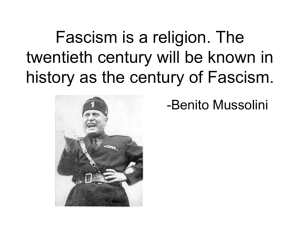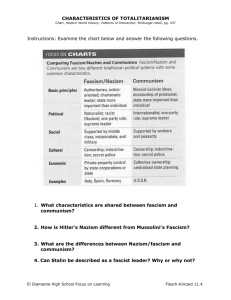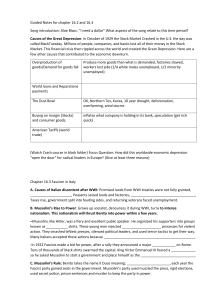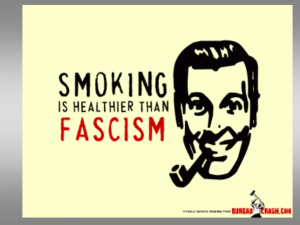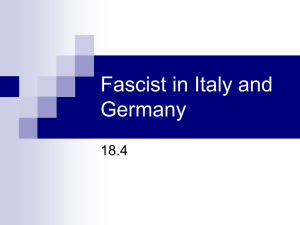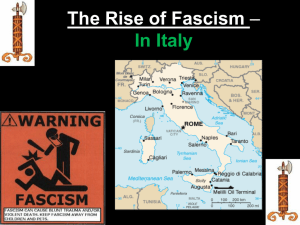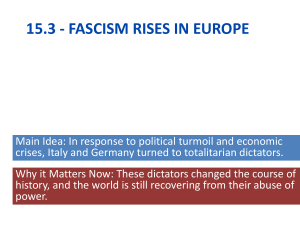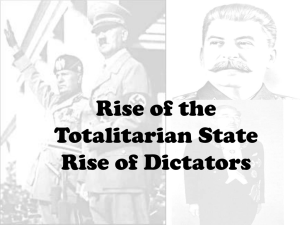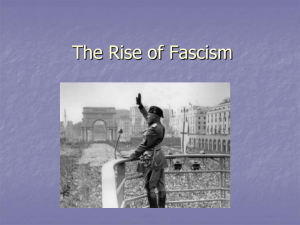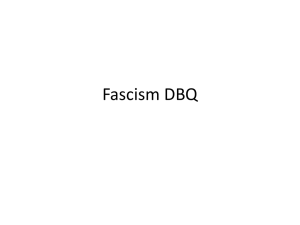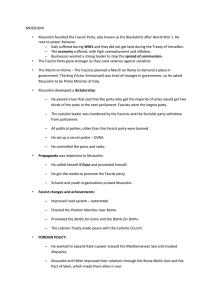Fascism – Italian origins
advertisement
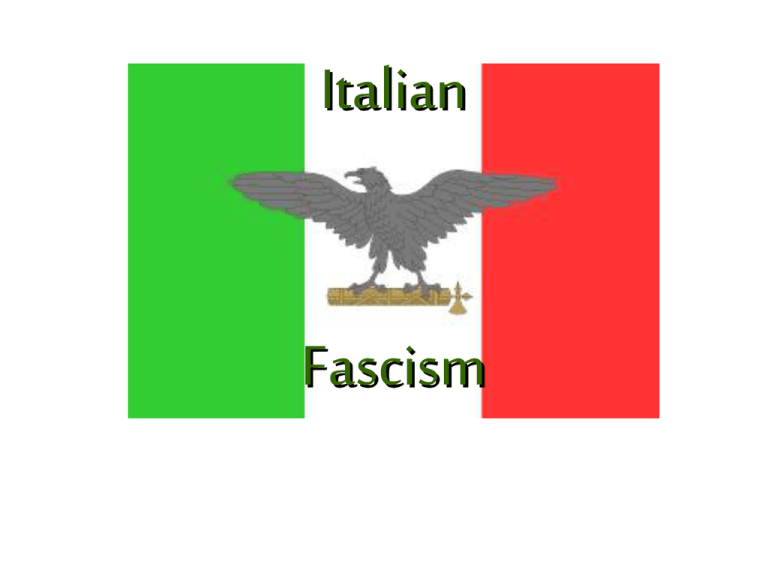
Italian Fascism A Definition of Fascism Fascism is the totalitarian philosophy of government that glorifies the state and nation and assigns to the state control over every aspect of national life. The State not only is authority which governs and molds individual will with laws and values of spiritual life, but it is also power which makes its will prevail abroad….For the Fascist, everything is within the State and…neither individuals nor groups are outside the State...For Fascism, the State is an absolute, before which individuals or groups are only relative….Liberalism denied the State in the name of the individual; Fascism reasserts the rights of the State as expressing the real essence of the individual. -- Enciclopedia Italiana, 1932 Fascism • Sicilian word fasci (group) • Latin fasces • Referred to bundle of bound sticks • Symbol of power in Ancient Rome • Adopted as party symbol The Rise of Mussolini Immediate Post-WW I Italy Fascism, to some extent, was a product of a general feeling of anxiety and fear among the middle class of post-war Italy: Fears regarding the survival of capitalism. Economic depression. The rise of a militant left. A feeling of national shame and humiliation at Italy’s poor treatment by the other Entente leaders after World War I [especially at Versailles]. Benito Mussolini (1883-1945) Originally a Marxist. By 1909 he was convinced that a national rather than an international revolution was necessary. Fascist Party • Formed on Nov 8, 1921 • Strict hierarchy • Mussolini, Il Duce, above hierarchy • Gained most support from ex-soldiers, who favored his hierarchy and discipline in support of the national cause Immediate Post-WW I Italy In 1920 the Italian Socialist Party organized militant strikes in Turin and other northern Italian industrial cities. Economic chaos in the north could spread to the rest of Italy! Hundreds of new fascist groups developed throughout Italy in response “Black Shirts” [paramilitary squadriste] violently attacked the Socialists. March on Rome • October 27, 1922 • Over 100,000 Fascist threaten revolt in Rome • King Victor Emmanuel II declares Mussolini Prime Minister because he feared civil war • Once in control, Mussolini makes the parliament powerless, destroys labor unions, deprives workers the right to strike, implements strict censorship laws, and abolishes all other political parties 2nd Roman Empire Mussolini wanted to re-create the Roman Empire Resumed imperialistic ventures in Africa Occupied Libya 1923-31 War (victory) with Abyssinia (Ethiopia) 1935 Invasion of Albania 1939 May 9, 1936 declared “Fascist Empire” Mussolini Was Hitler’s Role Model
